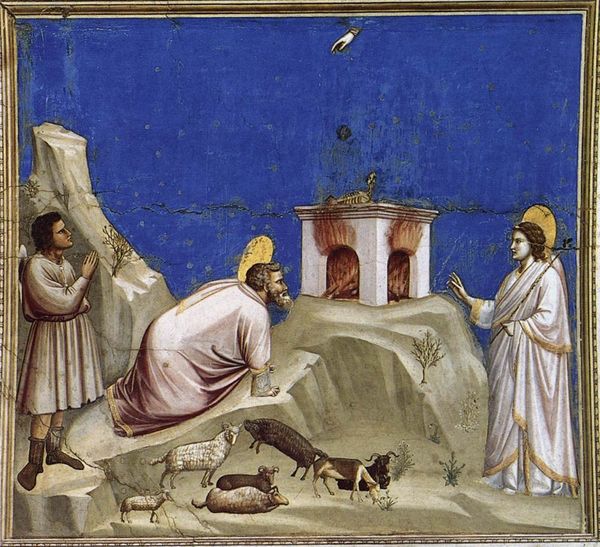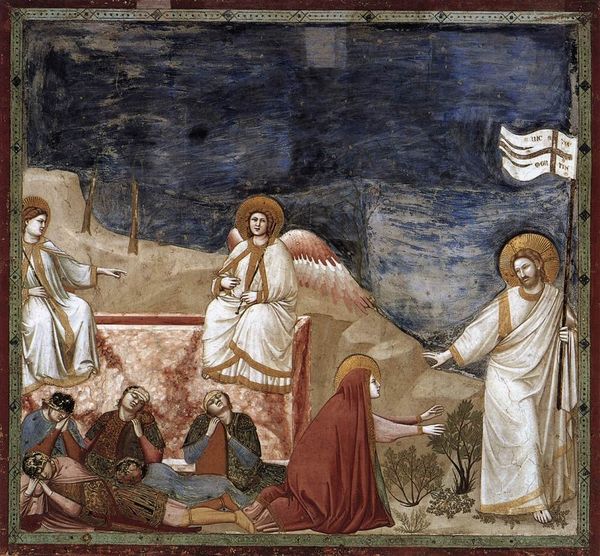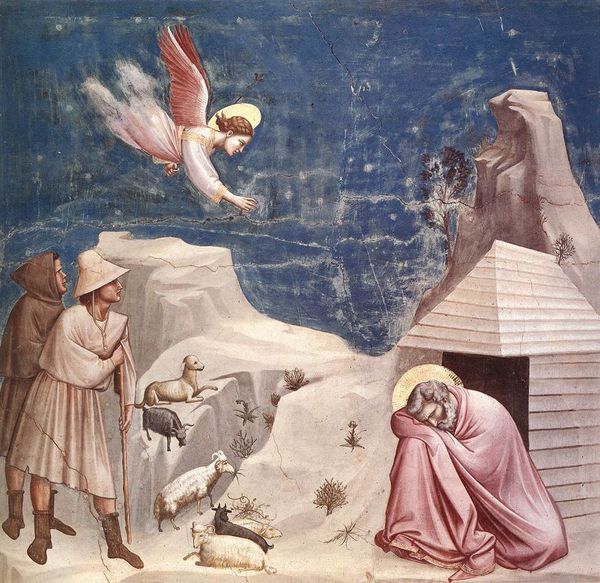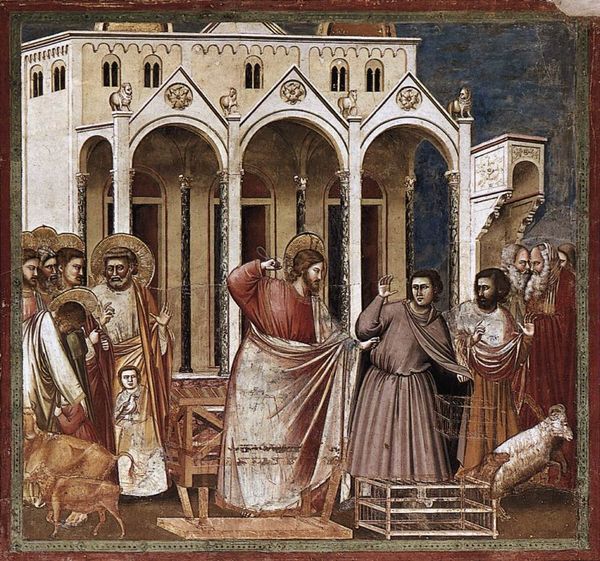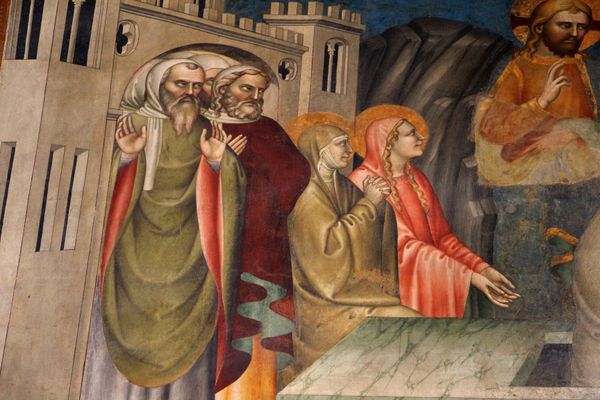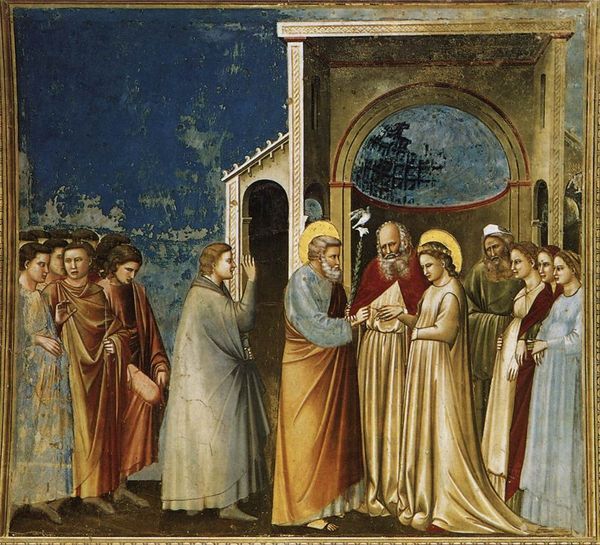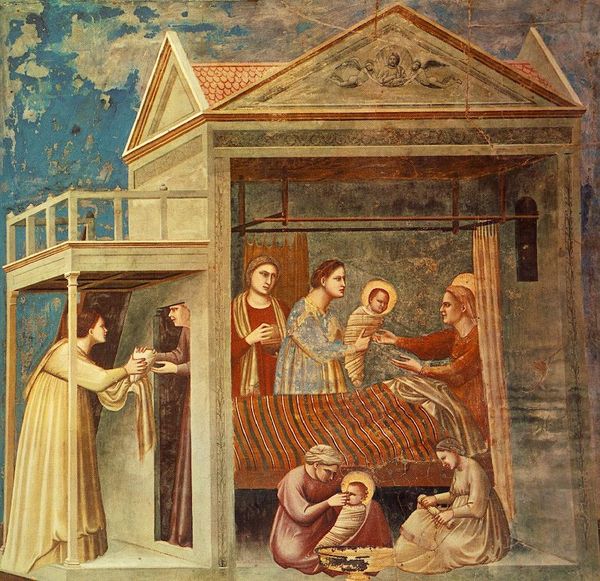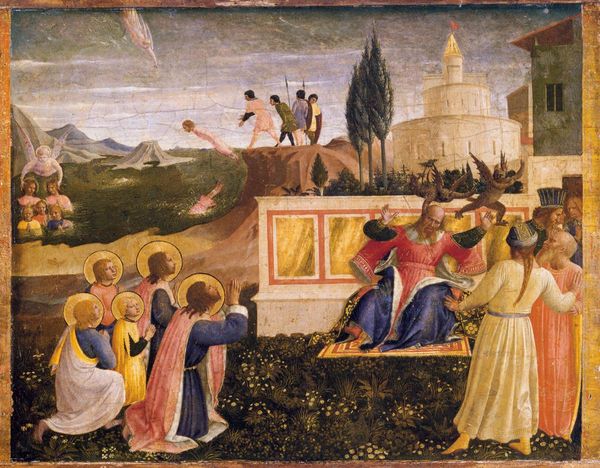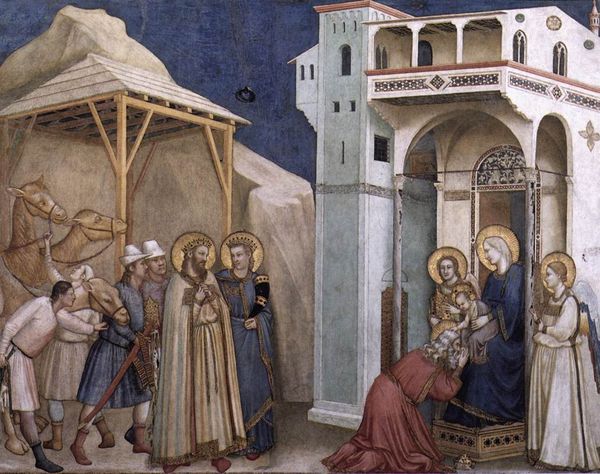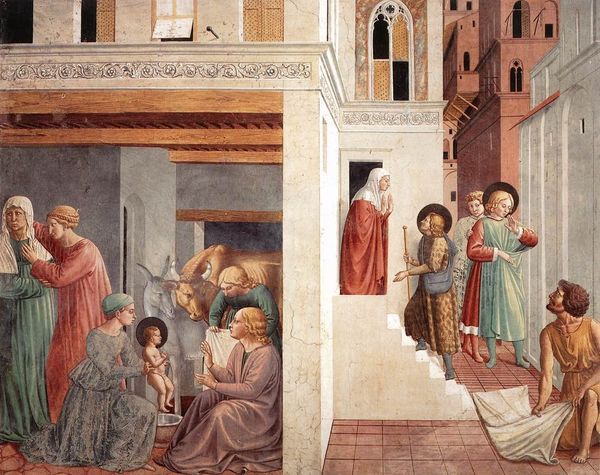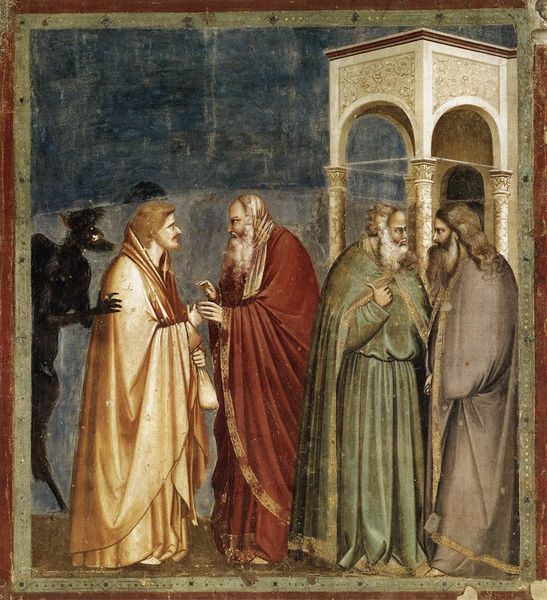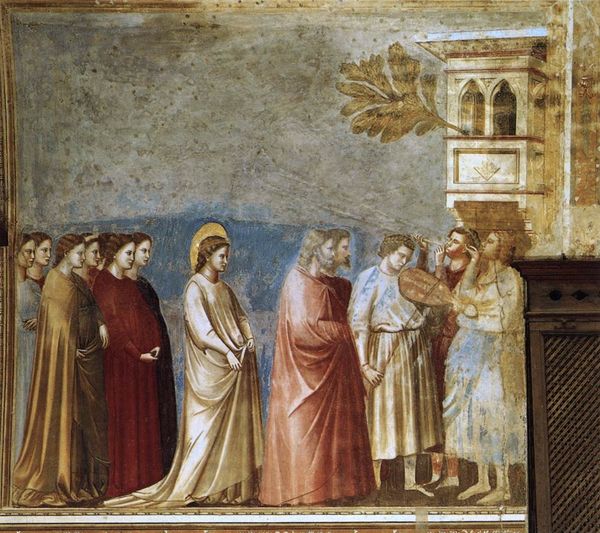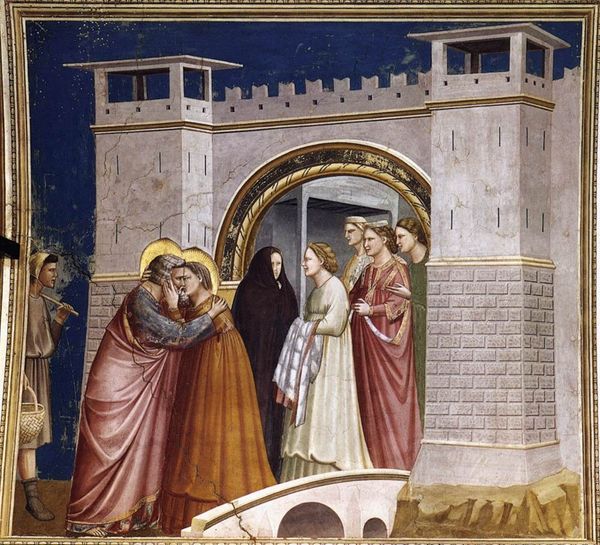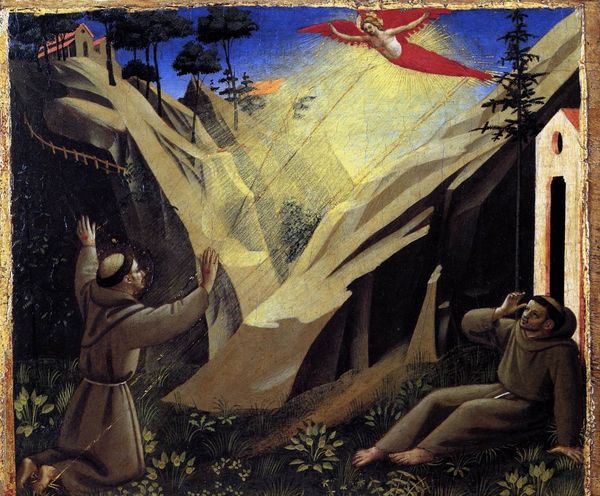
painting, fresco
#
portrait
#
narrative-art
#
painting
#
landscape
#
fresco
#
oil painting
#
christianity
#
painting painterly
#
italian-renaissance
#
early-renaissance
Dimensions: 200 x 185 cm
Copyright: Public domain
Giotto painted Joachim among the Shepherds without a specified date using fresco in Padua, Italy. Giotto's frescoes were revolutionary for their time because they broke away from the stylized flatness of Byzantine art. He introduced a sense of depth and realism. Looking closely, notice the architectural elements and naturalistic details. These features signal Giotto's shift towards a more humanist approach, reflecting the changing values of the early Renaissance in Italy. The Scrovegni Chapel, where this fresco is located, was commissioned by a wealthy Paduan family. The chapel served as both a private place of worship and a public display of piety. The frescoes themselves narrate biblical stories that resonated with the patrons' social and religious concerns, especially regarding wealth and salvation. Art historians use a variety of primary and secondary sources to understand the historical context. This context includes religious texts, social histories, and patronage records. By studying these resources, we can better understand the role of art in shaping cultural values. Ultimately we can reflect on the relationship between artistic innovation, social change, and institutional power.
Comments
No comments
Be the first to comment and join the conversation on the ultimate creative platform.
